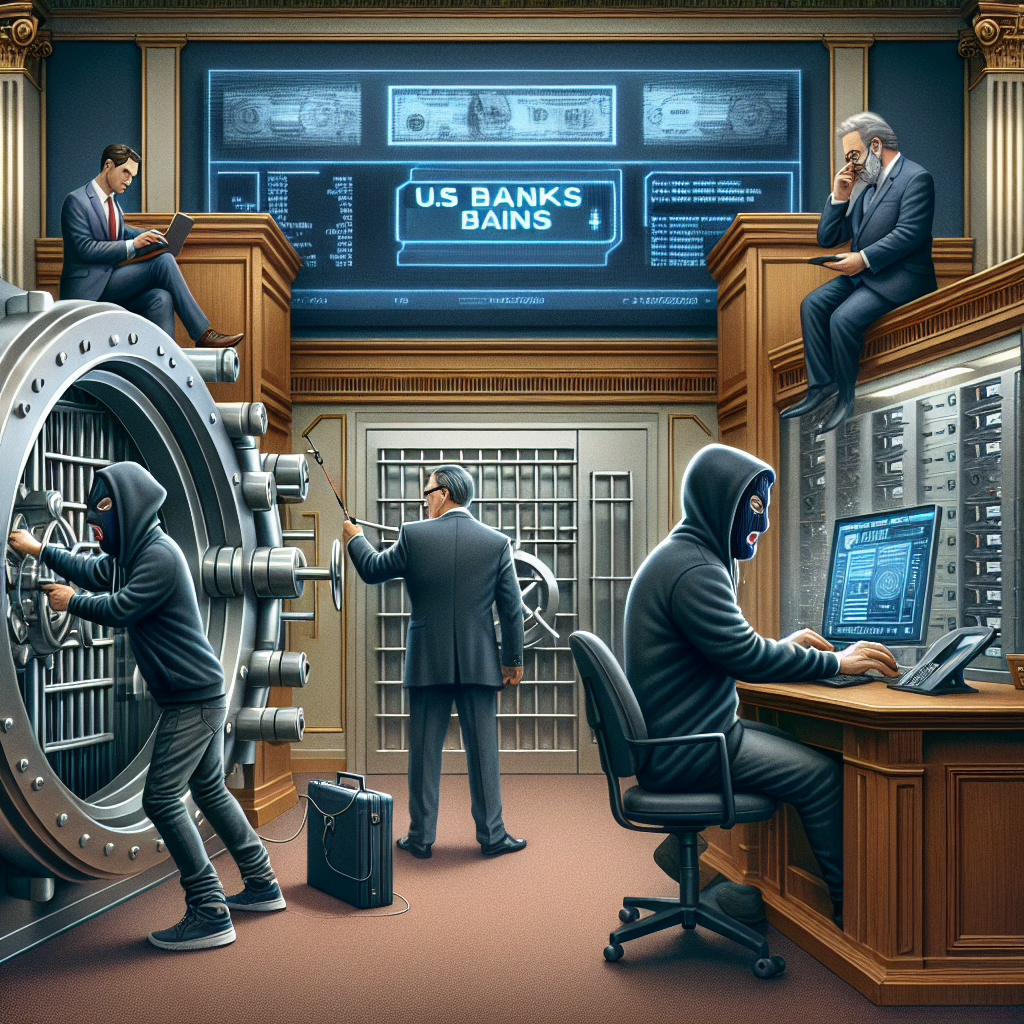In the ever-evolving world of finance, one truth remains constant: US banks and cybersecurity often have a complicated relationship. Picture this: a bank, its vaults filled with your hard-earned cash, is also harboring secrets about its cybersecurity mishaps. What could possibly go wrong? Well, it turns out a lot, especially when it comes to transparency and consumer trust.
The Great Cybersecurity Hide-and-Seek
Imagine a game of hide-and-seek where the seeker refuses to count. That’s somewhat akin to how some US banks handle cybersecurity breaches. When a bank suffers a cyberattack, the last thing they want is to make a public announcement that could send customers running for the hills. After all, who wants to hear their bank has been hacked? It’s like finding out your favorite restaurant has a rat problem; you might think twice about dining there again.
The reluctance of banks to disclose these incidents can be attributed to several factors:
- Reputation Management: No bank wants to be the headline of “Bank X Hacked!” followed by countless memes.
- Regulatory Concerns: Reporting breaches can trigger investigations that are more tedious than assembling IKEA furniture without instructions.
- Investor Relations: Shareholders might not appreciate learning that their investments are at risk due to cyber threats.
The Risks of Keeping Secrets
While keeping cybersecurity breaches under wraps might seem like a smart move for US banks, it raises significant concerns for consumers. When customers remain unaware of potential threats, they can’t make informed decisions about their financial safety. It’s like driving without knowing there’s a pothole ahead—bumpy and potentially damaging!
The impact of undisclosed hacks can ripple through the financial system. If customers lose trust in their banks due to hidden breaches, they might withdraw their funds or switch institutions faster than you can say “high-interest savings account.” It’s crucial for banks to strike a balance between protecting their image and ensuring customer awareness.
The Importance of Transparency in Cybersecurity
So, what’s the solution? Should US banks start broadcasting every breach like it’s breaking news? Not quite. Instead, they should embrace a culture of transparency while still adhering to security protocols. Imagine receiving regular updates from your bank about their cybersecurity efforts—like a friendly reminder that they’re on top of things rather than burying their heads in the sand.
This could include:
- Regular Security Audits: Sharing audit results with customers can help build trust.
- Customer Education: Informing customers about best practices for online banking security can empower them.
- An Open Dialogue: Encouraging feedback on security measures can foster community trust.
The Future of Banking Security
The landscape of cybersecurity is continually evolving, and so must the strategies employed by US banks. As technology advances, so do the tactics employed by cybercriminals. Banks need to stay ahead of the game by investing in advanced security measures and adopting proactive communication strategies.
The year 2025 will undoubtedly bring new challenges in the realm of cybersecurity. With the rise of artificial intelligence and machine learning, banks must harness these technologies not only for operational efficiency but also as robust defense mechanisms against potential attacks.
If banks choose to keep cybersecurity breaches secret, they risk losing not only customer trust but also their very competitive edge in an increasingly digital world. Customers today want transparency, assurance, and above all, safety when it comes to their finances.
Your Thoughts on Bank Security?
As we navigate through this digital age together, what do you think? Should US banks disclose their cybersecurity issues more openly? Are we ready for full transparency in our financial institutions? Share your thoughts below; we’d love to hear from you!
A special thanks to TechRadar for shedding light on this important topic! For additional insights, you may also find our article about Microsoft’s Russian unit bankruptcy interesting, as it reflects the far-reaching effects of transparency (or the lack thereof) in the tech industry.

